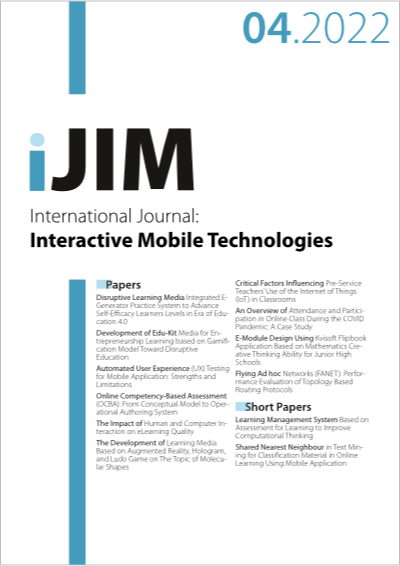The The Development of Learning Media Based on Augmented Reality, Hologram, and Ludo Game on The Topic of Molecular Shapes
DOI:
https://doi.org/10.3991/ijim.v16i04.28989Keywords:
augmented reality, hologram, learning media, ludo game, molecular shapesAbstract
This Currently, technology-based learning media is needed to attract students' learning interest. Augmented Reality and Hologram, both technologies are able to answer these problem. In addition, the Ludo Game can also increase the student’s learning interest when applied as a learning media. This study aims to: developing a learning media based on Augmented Reality, Hologram, and Ludo Game on the topic of molecular shapes, as well as knowing the feasibility of this learning media. Research and Development (R&D) is used as research methods. The development of media adapted the ADDIE model, which includes the stage: assessment/analysis, design, development, implementation, and evaluation. The feasibility of this learning media is based on the results of product validation as a learning media, material, and small group trials of 17 Senior High School students. The results of study found that the percentage of product validation results as a learning media is 85,56% (very feasible), material is 88,00% (very feasible), and small group trials is 87,25% (very feasible). Based on this, it can be concluded that this learning media is very feasible to be implemented in the study on the topic of molecular shapes.
Downloads
Published
How to Cite
Issue
Section
License
Copyright (c) 2022 Rifqon, Muchson, Oktavia, Ms. Asia

This work is licensed under a Creative Commons Attribution 4.0 International License.



